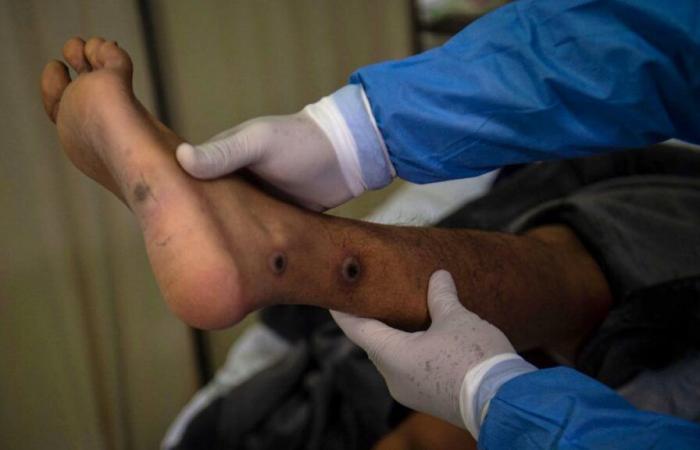
The arrival in France of the new variant of mpox, of which a first case was identified in Brittany, does not mean that the risks of catching the disease are increasing in this country where it has already been present for several years. On the other hand, this underlines the importance of vaccination for people deemed to be at risk.
Mpox – contraction of monkeypox, monkey pox in English – is a viral disease which manifests itself mainly by fever and the appearance of skin lesions, called vesicles. Largely confined to around ten African countries since its discovery in the 1970s, it has spread in 2022 to the rest of the world, including developed countries. Historically, mpox is best known for being transmitted through contact with animals, particularly through the consumption of contaminated flesh. But recent epidemics also seem linked to contamination from one human to another, particularly during sexual intercourse.
We speak of a “clade” to designate the different families of the mpox virus. Since 2022, clade 2 has been circulating in France, as in most countries where the disease has been detected outside Africa. This time, it is a variant of the other large family, clade 1, which was spotted in a patient in Brittany, in western France. Another subtlety: it is not the classic clade 1, present for decades in Africa, but a sub-variant, clade 1b, much more recently identified in the Democratic Republic of Congo (DRC).
There is no indication at this stage that this version of the virus would be more dangerous. Certainly, clade 1 is associated with higher mortality than clade 2. The first is currently causing an epidemic centered in the DRC, with more than 1000 deaths last year. In contrast, the epidemic caused by clade 2 proved to be extremely lethal in countries outside Africa. But these gaps are largely explained by the superior quality of care in developed countries and by the profile of patients. In Central Africa, these are frequently malnourished children, who have often been directly contaminated through animals. In developed countries, it is almost exclusively adults, most often men, who are infected during homosexual relations.
The appearance of the new 1b variant, however, requires increased vigilance. First, because we still don’t know many things about his profile. Unlike its big brother, the classic clade 1, it strikes in the DRC – and in some neighboring countries – adults rather than children. It therefore seems that its mode of transmission is similar to that of clade 2, but its degree of contagiousness remains to be decided. Reassuringly, clade 1b has not caused new outbreaks in the European countries where it has been identified in recent months: Germany, Belgium, the United Kingdom and Sweden. These were generally people who had just returned from Central Africa and had been infected there.
Several vaccines, originally developed against smallpox, are effective against mpox. It remains to be clarified to what extent this effectiveness continues against clade 1b, but for the moment, experts are rather confident.





